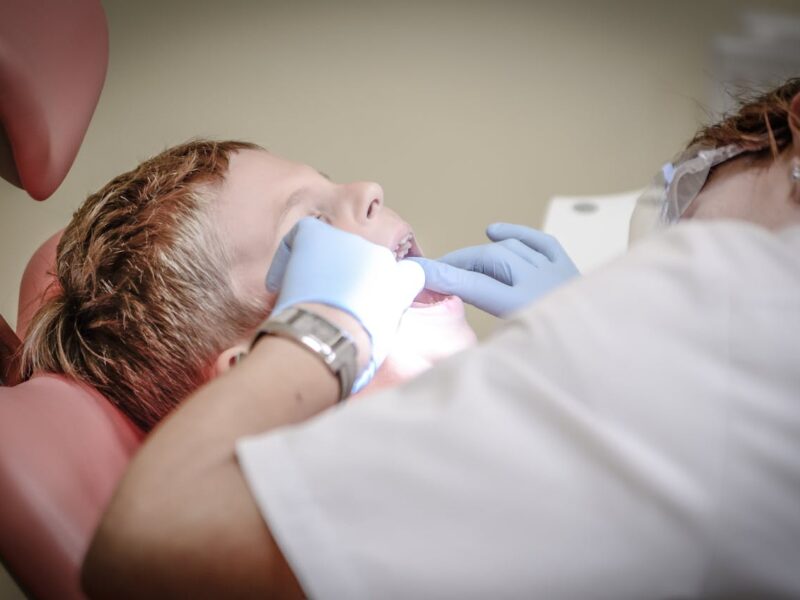In 2022, about 25% of American adults have untreated dental cavities.
Are you getting a toothache? Do you have decay in your tooth roots? What do you do if you need to find a dentist on short notice?
Your tooth is one of your most important organs, and you must take care of it. While cleanings, braces, and dental care are essential during childhood, many adults do not go to the dentist for a clean check-up once they hit adulthood.
Many adults do not understand the importance of their teeth. Severe tooth decay can spread to the tooth root, causing pain and infections. You may also need help eating, chewing, and speaking without your teeth.
Keep reading to find out if you’re dealing with a problem in your tooth roots or another issue.
Contents
Periodontal Therapy
In some cases, tooth root decay can cause recession of the gums and weakening of the teeth. Periodontal therapy is necessary to stop this and reverse the damage. This treatment may involve scaling, root planing, and other treatments.
You may follow these therapies with local drug treatments to eliminate bacteria and plaque. The dentist may apply a sealant or protective coating during periodontal treatment to guard the teeth against future damage and decay. Furthermore, to achieve the best results, patients may need regular periodontic maintenance to keep the area free of disease-causing bacteria and plaque.
Professional Dental Cleaning
Tooth root decay is a severe problem that requires immediate attention. Professional dental cleanings are the best way to prevent and treat root decay. A cleaning procedure is essential, as most dental problems are caused by poor dental hygiene.
During a cleaning, a skilled dentist or hygienist uses special tools to remove plaque, tartar, and calculus from the teeth and gums. It helps to prevent the accumulation of bacteria in the area, which can lead to decay. A professional cleaning can also detect the presence of root decay so that the dentist can treat it immediately.
It is essential to have regular professional cleanings, as they can help to reduce the risk of root decay and keep your mouth healthy. Your dentist may recommend treating existing root decay cases and stopping further damage.
Surgical Grafting
During this procedure, healthy bone tissue is taken from elsewhere in the body and surgically grafted around the roots of the affected tooth. It helps to prevent deterioration of the root and also assists in promoting the regrowth of healthy bone and tissue in the area. It can also help restore the appearance of the affected area.
After the procedure, the patient needs to follow their dental care routine to ensure that the problem does not recur or worsen. Furthermore, regular visits to the dentist are recommended to monitor the area’s progress and identify any signs of root decay.
Dental Restoration
The restoration procedure will depend on the severity of the tooth root decay and may include root canal therapy or a crown. Before taking any dental restoration, you should x-ray the affected tooth. It helps determine the exact extent of the decay and the best restoration option.
You can complete dental restorations for root decay using composite resin, a filling material used to seal the area once the decay has been removed. After sealing the tooth, a crown may be necessary to strengthen it further.
Antibiotics
In cases where the decay is beyond cleaning and filling, you may be prescribed antibiotics to help reduce bacteria levels in the mouth. Antibiotics such as penicillin, clindamycin, and erythromycin kill bacteria in the mouth.
Depending on the severity of the root decay, patients may need more than one course of antibiotics. Before taking any antibiotics, it’s essential to consult with a dentist and be tested for allergies to ensure no adverse reactions.
Root Canal Therapy
Root canal therapy can be a great solution to tooth root decay, especially when it is still in its early stages. A root canal process involves removing the infected, damaged, and decayed portions of a tooth’s root. The next step will be cleaning and filling it with a sealant to prevent further decay and infection.
If not treated, a root-decayed tooth can cause severe pain and make the person unable to eat correctly. Furthermore, the infection can spread to other parts of the mouth or body and cause other health problems. Root canal therapy helps to prevent all of that.
While the process of a root canal can be time-consuming and uncomfortable, the results are well worth it. It enables people to keep their decayed teeth for more extended periods. They can also avoid the high cost of extracting their tooth and potentially purchasing replacement teeth.
Tooth Extraction and Replacement
You may need to remove a tooth if the decay is too significant. Your dentist will perform the procedure if the tooth is past saving. If the decay does not reach the root, the dentist may fill the canals with a material that will provide a protective shield against further decay.
After a successful extraction and any necessary treatments, the patient can decide to replace the extracted tooth with a dental implant, bridge, or denture. A dental implant is the most reliable and natural replacement option.
Working with a specialized dentist for dental extractions and replacements is essential. To ensure the best results, get dental implants here for the best results.
Improved Preventive Care
When visiting the dentist, discussing preventive care practices such as proper brushing and flossing methods is essential. It is also necessary to limit sugary, acidic, and starchy foods. Dentists also recommend the daily use of fluoride and mouthwash and regular dental visits.
Daily preventive care is the first step for preventing root decay by lessening the number of plaque ridges along the gum line. Maintaining a healthy diet that prevents mineral leaching and acid erosion can reduce risk.
Protect Your Tooth Roots With Proper Dental Care
If you have tooth root decay, it is essential to seek professional treatment as soon as possible. Professional dental cleaning and treatment will most effectively prevent further damage and promote recovery.
If you are at risk of decay in your tooth roots, take preventative measures like improved brushing and flossing habits and regular dental check-ups. Talk to your dentist to help you get your oral health back on track!
Has this article helped you out? For more articles like this one, check out the rest of our website!



